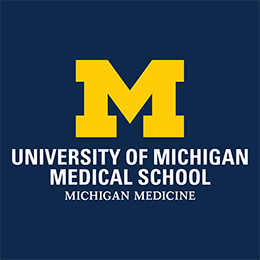Emergency medicine is a specialty of acuity and breadth. Emergency physicians see all types of patients from pediatrics to geriatrics, from medical to surgical. Although lay people often equate emergency medicine with trauma, major trauma cases comprise less than 10% of emergency department patients, and over half of emergency department patients present with medical illnesses.
Emergency medicine is a hospital-based specialty in that one will see patients in a hospital emergency department and typically not in a free-standing unit. Most emergency departments are in community hospitals with annual patient volumes of 15,000 to 35,000 visits per year.
Typically, a group of physicians will contract with a hospital to provide coverage in the emergency department. In teaching hospitals and large academic centers, annual emergency department patient volumes may be over 90,000 patients per year. Emergency department volumes have increased in recent years.
Emergency physicians focus on the rapid diagnosis and initial resuscitation and treatment of patients' problems and diseases. Emergency physicians enjoy problem-solving and diagnostics. The practice also includes a variety of procedures, including laceration repairs, some fracture and dislocation reductions, management of major trauma, airway management, and other invasive procedures.
Academic opportunities are just as wide-ranging and include clinical and bench research, health outcomes and services research, healthcare policy, and opportunities in undergraduate and graduate-level medical education.
ACGME-accredited fellowship or subspecialty training opportunities include toxicology, pediatric emergency medicine, hyperbaric and undersea medicine, sports medicine, and critical care.
Residency Training
- Duration of training: Three or four years
- Number of programs nationally: 256
- Number of entering residency positions: 2,665
- Types of fellowships or subspecialties: EMS, Pediatric EM, Research, Sports Medicine, Toxicology, Palliative Care, Critical Care (with Internal Med), Education, Ultrasound, Administration
- Type of Match: Regular
- Overall competitiveness: Moderately high. 99.5% of available positions are filled in match
Primary Faculty Contact for M1s and M2s
Joseph House, M.D.
Medical Student Clerkship Director
joshouse@umich.edu
Rachel Yu Tzou
Medical Student Coordinator
734-763-1271
rachyu@umich.edu
Medical Student Club or Interest Group
- Emergency Medicine Interest Group (EMIG)
EMIGleadership@umich.edu
Shadowing/Mentoring
- Contact Coordinator, Rachel Yu Tzou
rachyu@umich.edu
Suggested Journals, Books & Information for Interested Students
- Society for Academic Emergency Medicine
- American College of Emergency Physicians
- American Academy of Emergency Medicine
- Emergency Medicine Residents’ Association
- Dr. Barsan’s article: From E.R. to ED
- Annals of Emergency Medicine
- Academic Emergency Medicine
- Standard text: Rosen’s Emergency Medicine: Concepts & Clinical Practice
- Brian Zink, MD. Anyone, Anything, Anytime: A History of Emergency Medicine, Mosby, 2006
- Case Files Emergency medicine: 4th edition; Toy, Rosh, Simon, Takenaka, Liu
- Emergency Medicine Pre-Test Self-Assessment and Review; 4th Edition; Adam J. Rosh, Ciara Barclay-Buchanan
